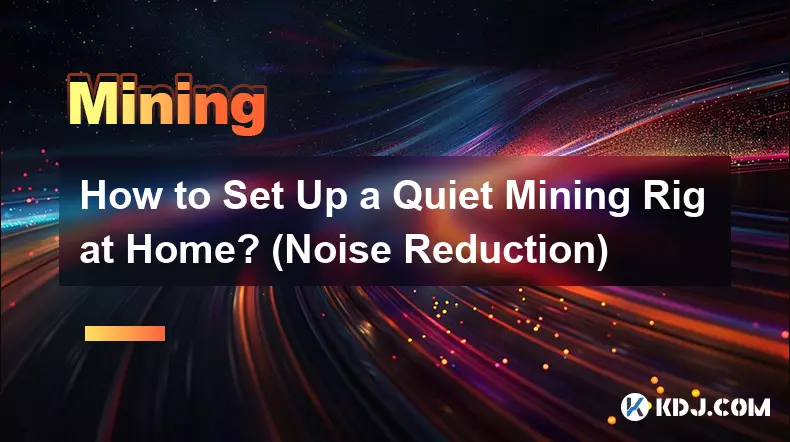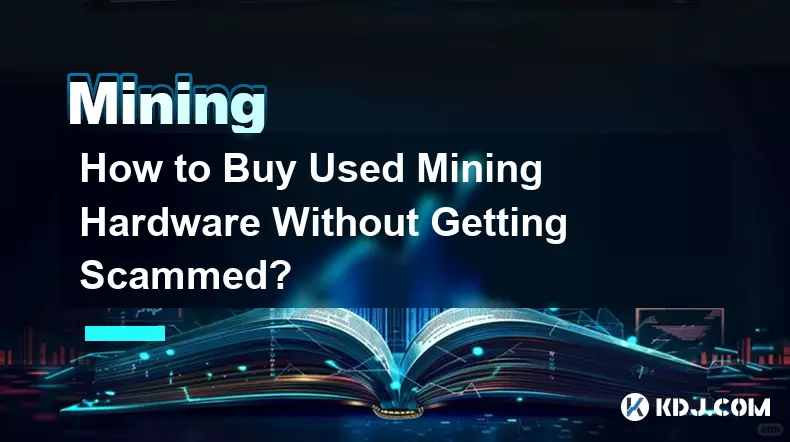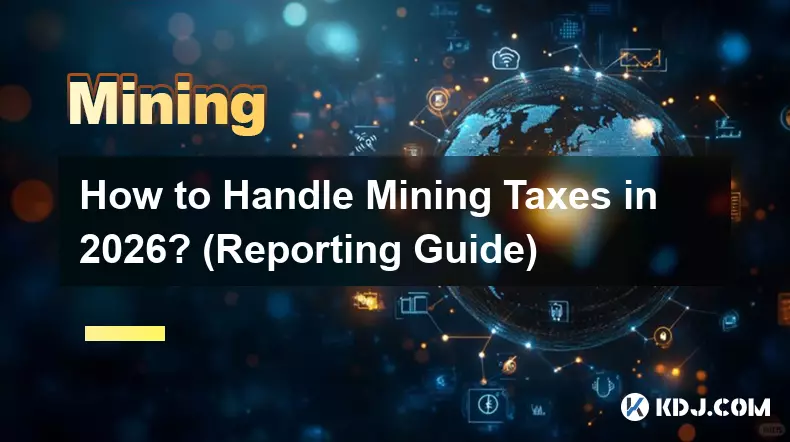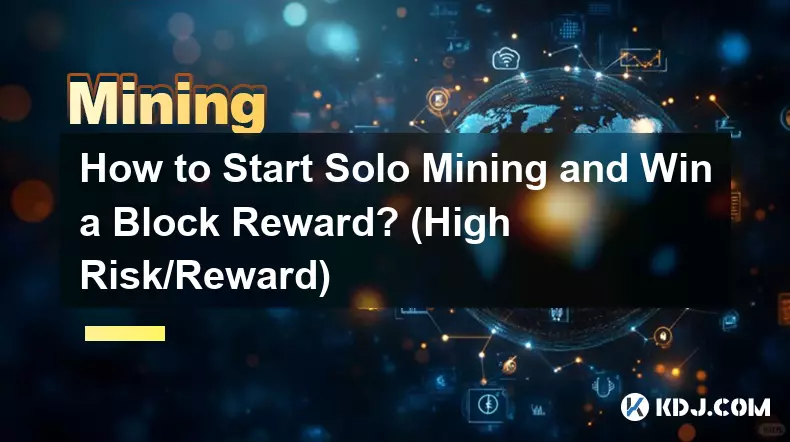-
 bitcoin
bitcoin $87959.907984 USD
1.34% -
 ethereum
ethereum $2920.497338 USD
3.04% -
 tether
tether $0.999775 USD
0.00% -
 xrp
xrp $2.237324 USD
8.12% -
 bnb
bnb $860.243768 USD
0.90% -
 solana
solana $138.089498 USD
5.43% -
 usd-coin
usd-coin $0.999807 USD
0.01% -
 tron
tron $0.272801 USD
-1.53% -
 dogecoin
dogecoin $0.150904 USD
2.96% -
 cardano
cardano $0.421635 USD
1.97% -
 hyperliquid
hyperliquid $32.152445 USD
2.23% -
 bitcoin-cash
bitcoin-cash $533.301069 USD
-1.94% -
 chainlink
chainlink $12.953417 USD
2.68% -
 unus-sed-leo
unus-sed-leo $9.535951 USD
0.73% -
 zcash
zcash $521.483386 USD
-2.87%
What is NFT Staking Mining? New Gameplay Tutorial
NFT staking allows users to lock their digital collectibles in smart contracts to earn crypto or NFT rewards, combining ownership with passive income opportunities.
Jun 21, 2025 at 01:35 pm

Understanding the Concept of NFT Staking Mining
NFT staking mining is a relatively new concept that combines two popular blockchain technologies: Non-Fungible Tokens (NFTs) and Proof-of-Stake (PoS) mechanisms. In this model, users can stake their NFTs on a specific platform to earn rewards, which are typically paid in cryptocurrency or additional NFTs. Unlike traditional staking where users lock up crypto assets like ETH or SOL, NFT staking involves locking digital collectibles or tokens, offering a unique way to generate passive income.
The idea behind NFT staking mining lies in leveraging the ownership rights of NFTs. Instead of letting these digital assets sit idle in a wallet, holders can put them to work by participating in governance, liquidity pools, or reward systems. The value of the staked NFT often influences the reward rate and duration, meaning higher-value or rarer NFTs may yield more significant returns.
How Does NFT Staking Mining Work?
At its core, NFT staking mining operates through smart contracts on decentralized platforms. These contracts define the rules for how NFTs can be staked, the duration of staking, and the type of rewards distributed. Here’s a breakdown of the process:
- Users connect their digital wallets (e.g., MetaMask, Trust Wallet) to an NFT staking platform.
- They browse available staking pools or projects that accept NFTs.
- After selecting a compatible NFT from their collection, they approve the transfer to the staking contract.
- Once approved, the NFT is locked in the contract for a predetermined period.
- During the staking period, the user earns rewards based on the pool's yield or project-specific algorithms.
Some platforms also allow fractional staking, where multiple users can share the benefits of a single high-value NFT. This opens the door for smaller investors to participate without owning expensive digital assets.
Popular Platforms for NFT Staking Mining
Several platforms have emerged as leaders in the NFT staking space. Each offers different features, supported blockchains, and reward structures. Some of the most notable include:
- NFTX: Allows users to stake NFTs into vaults and mint fungible tokens representing those NFTs. These tokens can then be traded or used in yield farming.
- Staked.tools: A dedicated NFT staking protocol focused on blue-chip collections such as Bored Ape Yacht Club and CryptoPunks.
- MintDAO: Offers a decentralized staking marketplace where creators and collectors can monetize NFTs.
- Element Finance: Supports staking of NFTs across multiple chains with varying reward mechanisms.
Before choosing a platform, it’s crucial to research factors like supported NFT standards (ERC-721, ERC-1155), security audits, and historical performance. Always ensure the platform has a transparent reward system and no hidden fees.
Step-by-Step Guide to Participate in NFT Staking Mining
If you're ready to start staking your NFTs, follow this detailed guide to navigate the process safely and effectively:
- Ensure your NFT is compatible with the chosen staking platform. Check supported collections and blockchain networks.
- Connect your wallet to the platform via the official website.
- Navigate to the staking section and select the NFT you wish to stake.
- Approve the smart contract interaction when prompted — this allows the platform to access your NFT.
- Confirm the staking duration and any associated terms.
- Complete the transaction using the appropriate gas fee.
- Monitor your staking dashboard regularly to check accrued rewards.
- Withdraw your NFT and claimed rewards once the staking period ends or at any time if early unstaking is allowed.
It’s important to note that some platforms require approval of both the NFT and reward token contracts, so always double-check permissions before proceeding.
Risks and Considerations in NFT Staking Mining
While NFT staking mining can offer attractive returns, it comes with several risks that should not be overlooked:
- Smart contract vulnerabilities pose a major threat. If the platform’s code is exploited, your NFT could be lost permanently.
- Market volatility affects both the value of the staked NFT and the rewards earned. A sudden drop in NFT prices can erode profits.
- Some platforms impose lock-up periods during which you cannot access your NFT, limiting liquidity.
- Rug pulls and scams are prevalent in the DeFi and NFT space. Always verify the legitimacy of the project and team behind the staking platform.
- Gas fees on certain blockchains like Ethereum can be prohibitively high, eating into potential earnings.
To mitigate these risks, conduct thorough due diligence, start with small stakes, and consider using trusted platforms with active communities and transparent operations.
Frequently Asked Questions (FAQ)
Q: Can I stake any NFT?A: No, only NFTs supported by specific platforms or protocols can be staked. Check the platform’s list of eligible collections before attempting to stake.
Q: What happens if the platform gets hacked?A: If the smart contract is compromised and lacks proper security measures, there’s a risk of losing your NFT. It’s vital to stake only on audited and well-established platforms.
Q: Do I retain ownership of my NFT while staking?A: Yes, you maintain ownership, but the NFT is temporarily locked in the staking contract. You can reclaim it after the staking period ends or under early unstaking conditions.
Q: Are there tax implications for NFT staking rewards?A: Depending on your jurisdiction, staking rewards may be considered taxable income. Consult a local tax professional to understand your obligations.
Disclaimer:info@kdj.com
The information provided is not trading advice. kdj.com does not assume any responsibility for any investments made based on the information provided in this article. Cryptocurrencies are highly volatile and it is highly recommended that you invest with caution after thorough research!
If you believe that the content used on this website infringes your copyright, please contact us immediately (info@kdj.com) and we will delete it promptly.
- No More Pocket Bricks: Tracker Cards Offer the Sleek AirTag Wallet Fix Solution
- 2026-02-01 22:10:02
- Trump's Northern Blast: How Canada Remarks Jolted WLFI Price and Shook Crypto Holders
- 2026-02-01 21:55:01
- Bitcoin Navigates Bear Market Blues Amidst a Weakening Dollar: A Shifting Crypto Landscape
- 2026-02-01 22:10:02
- Dogecoin's Rollercoaster: Navigating Moonshot Dreams Amidst Memecoin Risks
- 2026-02-01 22:05:01
- Bitcoin Price Drops: Key Factors Fueling the Sell-Off and What Comes Next
- 2026-02-01 22:05:01
- Bitcoin and Crypto Market Experience Wild Weekend Crash: What You Need to Know
- 2026-02-01 22:00:01
Related knowledge

How to Earn Passive Income with DePIN Mining? (New Trend 2026)
Feb 01,2026 at 12:40pm
Understanding DePIN Mining Mechanics1. DePIN mining relies on real-world infrastructure participation rather than computational hashing. Users deploy ...

How to Set Up a Quiet Mining Rig at Home? (Noise Reduction)
Feb 01,2026 at 11:00pm
Acoustic Enclosure Design1. Use rigid, dense materials such as MDF or acoustic-grade plywood for the enclosure walls to block mid-to-high frequency no...

How to Mine Bitcoin on Mac (M1/M2/M3)? (Software Tutorial)
Feb 01,2026 at 07:19pm
Understanding Bitcoin Mining on Apple Silicon1. Bitcoin mining relies on solving cryptographic puzzles using computational power, and Apple’s M1, M2, ...

How to Buy Used Mining Hardware Without Getting Scammed?
Feb 01,2026 at 08:00pm
Research the Seller's Reputation Thoroughly1. Check archived listings and feedback on platforms like Bitcointalk forums, Mining Hardware subreddits, a...

How to Handle Mining Taxes in 2026? (Reporting Guide)
Feb 01,2026 at 01:39am
Tax Classification of Mining Rewards1. Cryptocurrency mining rewards are treated as ordinary income at the fair market value on the date of receipt. 2...

How to Start Solo Mining and Win a Block Reward? (High Risk/Reward)
Feb 01,2026 at 06:40am
Understanding Solo Mining Mechanics1. Solo mining means operating a full node and attempting to solve cryptographic puzzles independently without join...

How to Earn Passive Income with DePIN Mining? (New Trend 2026)
Feb 01,2026 at 12:40pm
Understanding DePIN Mining Mechanics1. DePIN mining relies on real-world infrastructure participation rather than computational hashing. Users deploy ...

How to Set Up a Quiet Mining Rig at Home? (Noise Reduction)
Feb 01,2026 at 11:00pm
Acoustic Enclosure Design1. Use rigid, dense materials such as MDF or acoustic-grade plywood for the enclosure walls to block mid-to-high frequency no...

How to Mine Bitcoin on Mac (M1/M2/M3)? (Software Tutorial)
Feb 01,2026 at 07:19pm
Understanding Bitcoin Mining on Apple Silicon1. Bitcoin mining relies on solving cryptographic puzzles using computational power, and Apple’s M1, M2, ...

How to Buy Used Mining Hardware Without Getting Scammed?
Feb 01,2026 at 08:00pm
Research the Seller's Reputation Thoroughly1. Check archived listings and feedback on platforms like Bitcointalk forums, Mining Hardware subreddits, a...

How to Handle Mining Taxes in 2026? (Reporting Guide)
Feb 01,2026 at 01:39am
Tax Classification of Mining Rewards1. Cryptocurrency mining rewards are treated as ordinary income at the fair market value on the date of receipt. 2...

How to Start Solo Mining and Win a Block Reward? (High Risk/Reward)
Feb 01,2026 at 06:40am
Understanding Solo Mining Mechanics1. Solo mining means operating a full node and attempting to solve cryptographic puzzles independently without join...
See all articles










































































